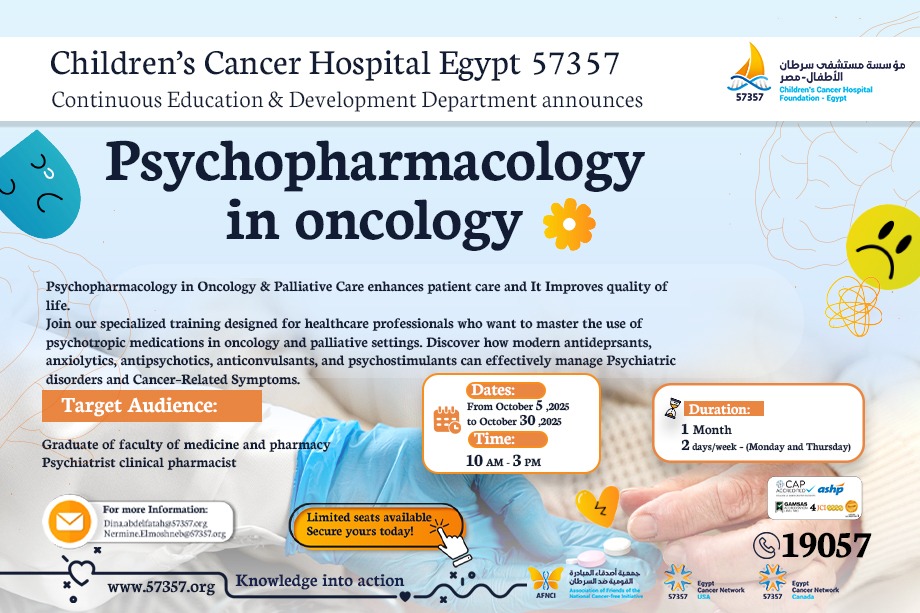Psychopharmacology in Oncology

Overview
Psychopharmacological intervention is a major clinical and research area in oncology and palliative care. Over the last 35 years, psychotropic drugs have been shown to have a number of important indications for the treatment of the most common psychiatric disorders, such as depression, anxiety, stress-related syndromes, severe adjustment disorders, sleep disorders and delirium, which combined affect at least 30-40% of patients with cancer and even a higher percentage of patients in an advanced phase of illness. The availability of new drugs, with less side-effects and safer pharmacological profiles, has been a major advance in clinical psycho-oncology. Interestingly, several drugs have also been found to be helpful for the adjuvant treatment of cancer-related symptoms, such as pain, hot flashes, pruritus, nausea and vomiting, fatigue, and cognitive impairment, making psychopharmacology an important tool for the improvement of cancer patients’ quality of life. This training aims to summarize recent relevant data concerning the use of psychotropic drugs, namely antidepressants, anxiolytics, antipsychotics, anticonvulsants and psychostimulants in patients with cancer.
Learning Objectives
By the end of this course, participants will be able to understand:
• Cancer-Related Symptoms
• Non-psychiatric cancer-related
symptoms, such as loss of appetite, sleep disturbances, pain,
anxiety, fatigue, which remarkably interfere with the quality of life
Psychiatric disorders
• Major Depressive Disorder (MDD): ADs in general (according to the
several guidelines available): attention to drug side effects, drug
interaction and medical conditions.
• Obsessive Compulsive Disorder
• Post-Traumatic Stress Disorder (PTSD): SSRIs (sertraline, paroxetine
are FDA-approved for the treatment of PTSD.
• Panic Disorder: SSRIs (fluoxetine, paroxetine, sertraline are FDA-
approved) and SNRIs (venlafaxine).
• General Anxiety Disorder: SSRIs (fluoxetine, paroxetine,
escitalopram, sertraline), SNRIs (venlafaxine, duloxetine);
pregabalin.
• Delirium: Typical antipsychotics (haloperidol, FDA-approved);
atypical antipsychotics (risperidone, olanzapine, quetiapine); BDZ in
alcohol-withdrawal delirium
Cancer-related symptoms or disorders
• Chronic and neuropathic pain: TCAs (amitriptyline), SNRIs
(duloxetine, venlafaxine) in combination with other pain
medications; anticonvulsants (valproate, gabapentin, pregabalin)
• Hot flashes (in breast cancer survivors): SSRIs (citalopram); SNRIs
(venlafaxine and desvenlafaxine are being studied) (NB: caution
regarding specific medications for women taking tamoxifen.
• Anorexia and cachexia: TCAs (amitriptyline, imipramine), NaSSA
(mirtazapine)
• Cancer-related fatigue: Psychostimulants (methylphenidate,
modafinil), NDRIs (bupropion)
• Sleep disturbances: BDZ (use with caution) and non-BDZ agents
(zolpidem, zopiclone, eszopiclone), SSRIs (citalopram), NaSSA
(mirtazapine), trazodone, SNRIs (venlafaxine, duloxetine)
Program Schedule
| Date | Time (from-To) | Topic | Type | Hours |
| Day 1 | 10-3 | • Cancer-Related Symptoms • Drugs induced psychiatric symptoms | Didactic | 2 hrs 3 hrs |
| Day 2 | 10-3 | • on psychiatric cancer-related • Dosage Guideline | Practicle | 3hs 2hs |
| Day 3 | 10-3 | • Depression &Obsessive Compulsive Disorder symptoms • Depression and Obsessive Compulsive Disorder Treatment | Practicle | 2hs 3hs |
| Day 4 | 10-3 | • Panic Disorder & Post Traumatic Stress Disorder • Plane of management: Medication and therapy | Didactic | 3hs 2hs |
| Day 5 | 10-3 | • Generalized Anxiety Disorder • Medication for GAD | Didactic Practical | 2hs 3hs |
| Day 6 | 10-3 | • Delirium • Chronic and neuropathic pain | Practical | 2hs 3hs |
| Day 7 | 10-3 | • Drug-Drug interaction • Dosage adjustment with chemotherapy | Practical | 3hs 2hs |
| Day 8 | 10-3 | • Pharmacodynamics • Pharmacokinetics | Practical | 2hs 3hs |
Available dates
From 1/12/2025 to 25/12/2025
Target Audience
Graduate of faculty of medicine and pharmacy, Psychiatrist, Clinical pharmacist
Certificate Requirements
In order to receive your certificate, you have to attend not less than 80%
- Hard copy for 300 Egyptian Pounds
- Soft copy for free